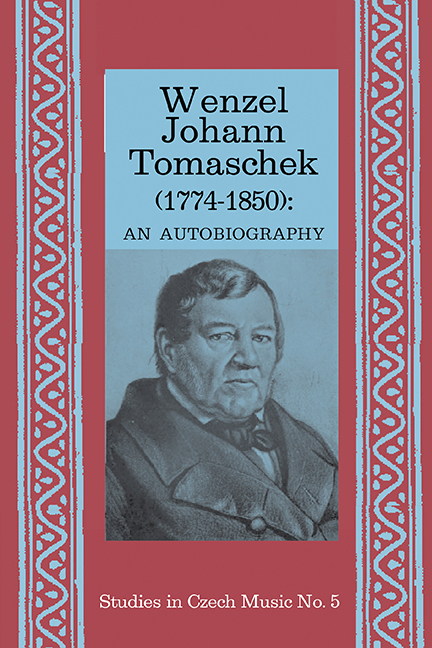Book contents
Chapter Seven
Summary
In 1809 the dogs of war were set free once more; Napoléon showed his opponents the entirely new style of his art of war, with which he arrived at Vienna, and thus set all of Austria, and consequently myself, into a state of panicked fear. No, I can find no word to express how much I hate war, no matter whether it is being won or lost; for, I believe that there can scarcely be a second man who can be disgusted by war in the same way that I am.
For the whole year I did not once take up the pen, and became that much more fluent at the pianoforte, practiced and improvised, with my view turned more inward than outwards. And it was in this year, where I prepared my theory of harmony according to the unalterable laws of nature, which little by little was increasingly simplified both through teaching and through practical composition. The oversized concerts of Napoleon were shunned by all the virtuosi, more or less like the larks flee a hawk, and so it was also the case that not a single artist let himself be seen in Prague.
In the following year, 1810, things became quieter, Napoleon became the son-in-law of the Austrian emperor, and within me there was a new desire to compose. A fugued ouverture, which was also intended to please the layman, was the first thing that I wrote; it remains in manuscript in my care, but was published as op. 38 by Marco Berra in piano reduction for four and also for eight hands. The continuation of the Eclogues was also soon ready, which was published as Op. 39, Liv. II by Peters in Leipzig. These compositions won themselves so many friends that I was everywhere requested to write more. I wanted to try myself in such compositions that primarily paired seriousness with power and energy. And then Antiquity with its rhapsodists as if through magic appeared before my soul; I saw and heard, how they declaimed whole passages from Homer's Iliad, and enthralled everyone. Should not music as Queen of the World of Feelings, I thought, also be able to express various affects of the soul through tone, harmony and rhythm, even if only sketched out?
- Type
- Chapter
- Information
- Wenzel Johann Tomaschek (1774–1850)Autobiography, pp. 55 - 58Publisher: Boydell & BrewerPrint publication year: 2017



